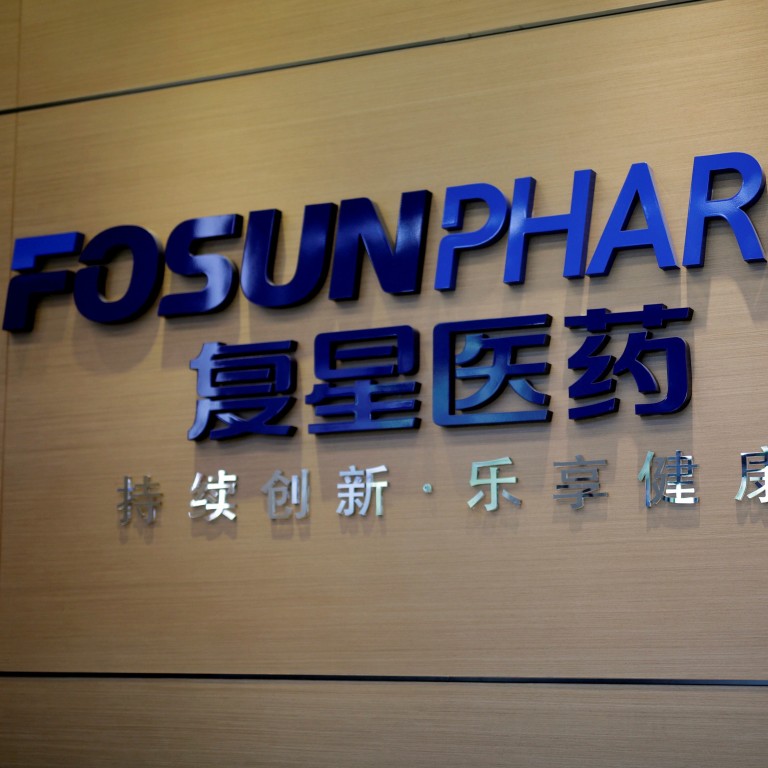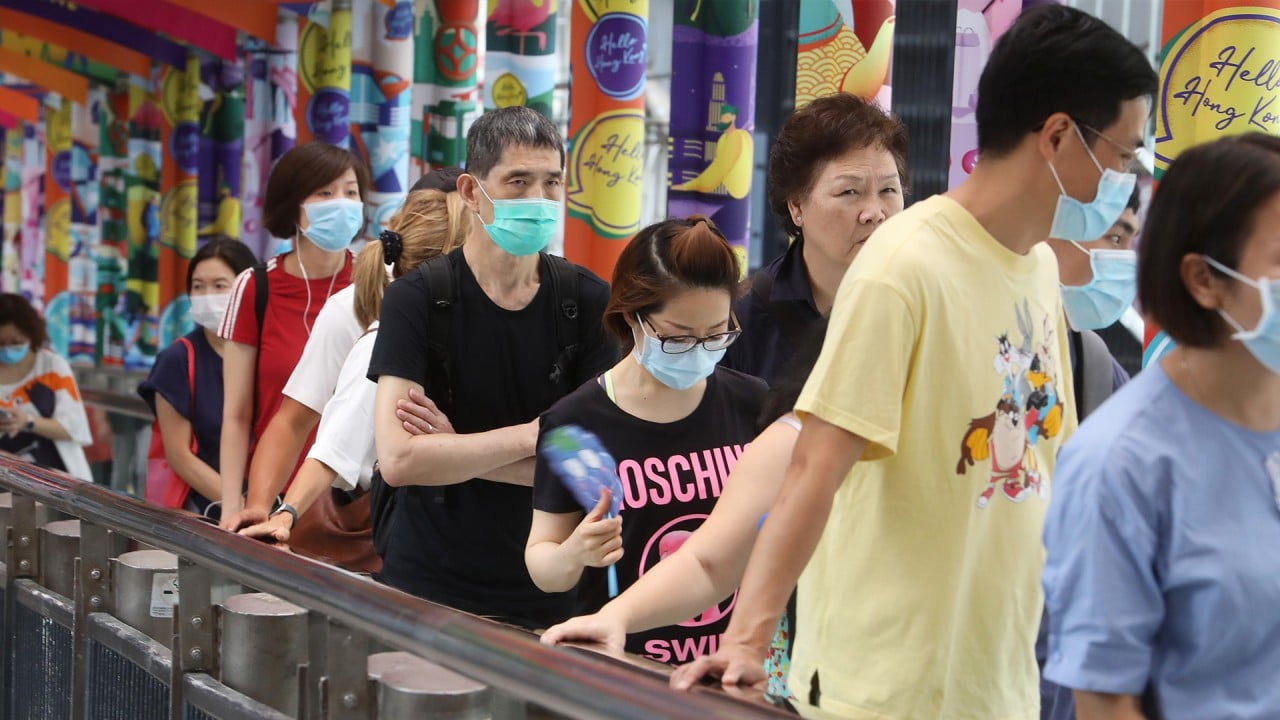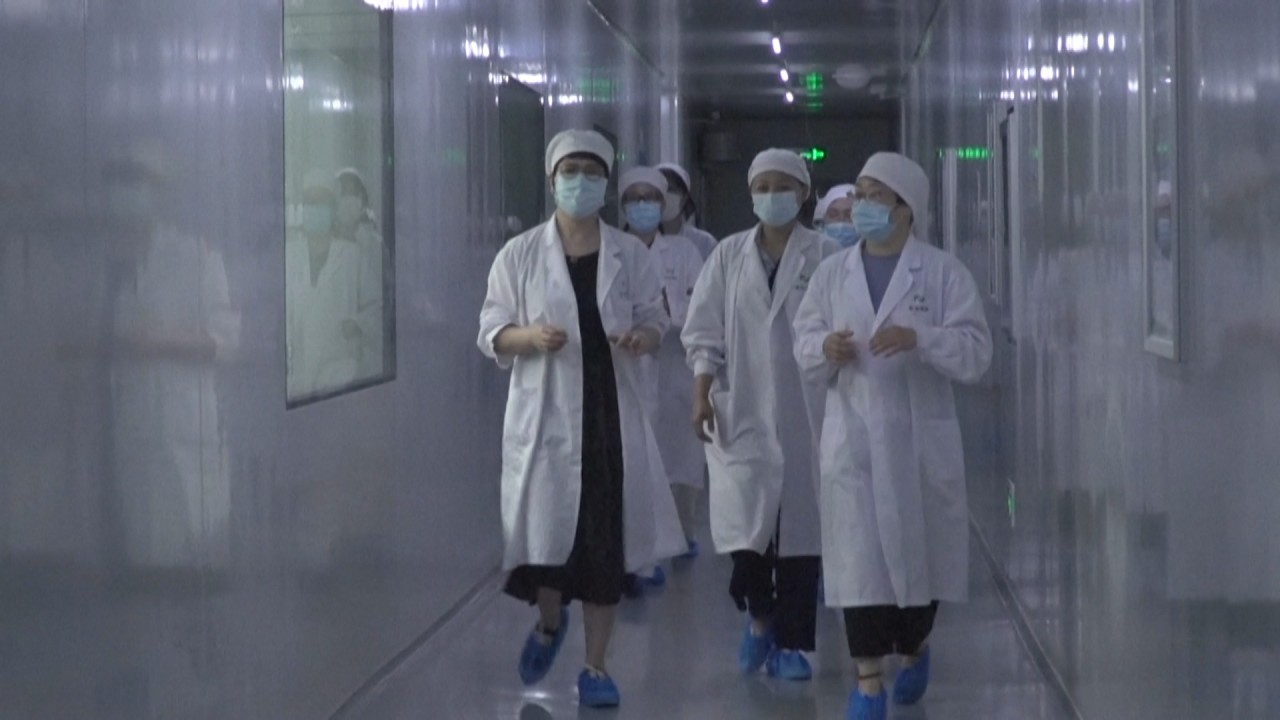
Coronavirus: Fosun Pharmaceutical shares surge as Beijing accepts application for clinical trial of vaccine candidate
- The trial application for the Covid-19 mRNA vaccine – BNT162b1 – being jointly developed by Fosun and Germany’s BioNTech – has been accepted
- The US FDA has also ‘fast tracked’ two experimental Covid-19 vaccines, one of which is BNT162b1
The trial application for the Covid-19 mRNA vaccine – BNT162b1 – in collaboration with German partner BioNTech was accepted by the National Medical Products Administration, the company said in a statement to Hong Kong’s bourse late on Monday.
“We will continue to maintain close contact with the administration and other relevant review authorities on the assessment of the vaccine candidate’s safety and efficacy,” Fosun Pharmaceutical CEO Wu Yifang said. “We will strive for clinical trial to begin soon and market the Covid-19 vaccine alongside other international vaccines’ launches.”
The shares gave up most of the gains, closing 1.8 per cent higher at HK$31.2, but outperformed the benchmark Hang Seng Index, which fell 1.1 per cent.
Unlike a normal vaccine, RNA vaccines work by introducing an mRNA sequence – the molecule which tells cells what to build – which is coded for antigens, the proteins that resemble that of the pathogen. Once produced within the body, the antigen on coronavirus-infected cells is recognised by the immune system which can then fight them.

03:10
Hong Kong battles third wave of coronavirus infections
RNA vaccines are faster and cheaper to produce than traditional vaccines, and an RNA-based vaccine is also safer for the patient as they are not produced using infectious elements, according to health care think tank PHG Foundation, which is part of the UK’s University of Cambridge.
No mRNA-based vaccine – made from genetically engineered virus DNA – has been approved for launch in the world, as the search for a workable vaccine against the novel coronavirus continues.
The pandemic, which has infected 13.2 million people and claimed over 575,000 lives, has induced the worst global economic downturn in decades as lockdowns have dealt a severe blow to most service industries.
Dr Katie Doores, lead author of a study at King’s College London which found that people who have recovered from the disease may lose their immunity to it within months, said people may need multiple vaccinations a year, The Guardian reported on Sunday.
In March 2020, Fosun Pharmaceutical obtained the licence from Mainz-based BioNTech to exclusively develop and commercialise their mRNA Covid-19 vaccine products in mainland China, Hong Kong, Macau and Taiwan. BioNTech will supply the vaccine should it be approved in the region.
BioNTech’s licensing agreement with Pfizer for the vaccine candidates excludes Greater China.

01:57
Coronavirus: Inside a Chinese lab joining global race to find a vaccine
As on Monday, 23 Covid-19 candidate vaccines were in clinical evaluation, while 137 others were under preclinical evaluation, according to the World Health Organisation.
Of the 23, eight were led by Chinese entities, two by entities in the UK, four in the US, two in India, two in Germany, two in Australia, and one each in Japan, South Korea and Russia.
Explainer | Who is in the global competition to develop a coronavirus vaccine?
In the lead are two candidates, one from Beijing-based vaccines producer Sinovac and one being jointly developed by the University of Oxford and UK pharmaceutical major AstraZeneca. Both are in phase three clinical trials that precede marketing approval applications.
Fosun has agreed to pay its German partner up to US$85 million in licensing fees for the vaccine candidate, in addition to 35 per cent of the gross profit from any potential sales of the vaccine. Fosun also agreed to buy US$50 million worth of BioNTech shares.
“The deal could help Fosun quickly build up a presence in innovative vaccines development, especially oncology vaccines,” Minsheng Securities analyst Sun Jian wrote in a note in March. “Some of BioNTech’s candidates are already in phase two trials.”

